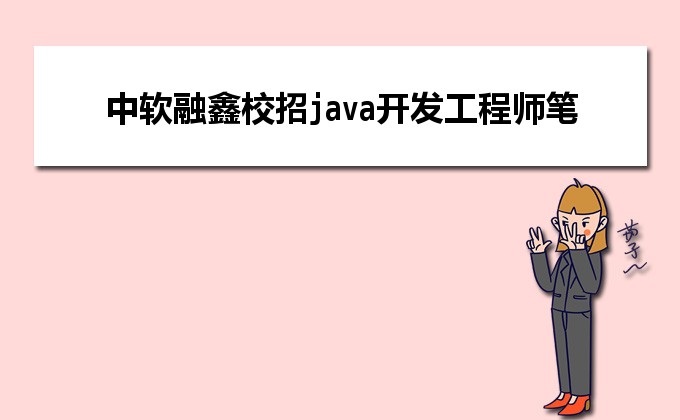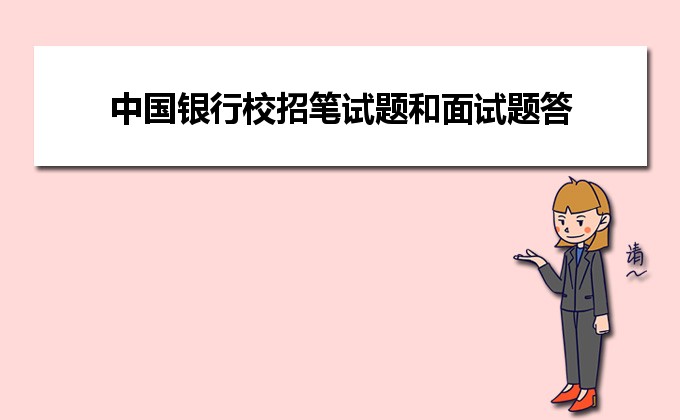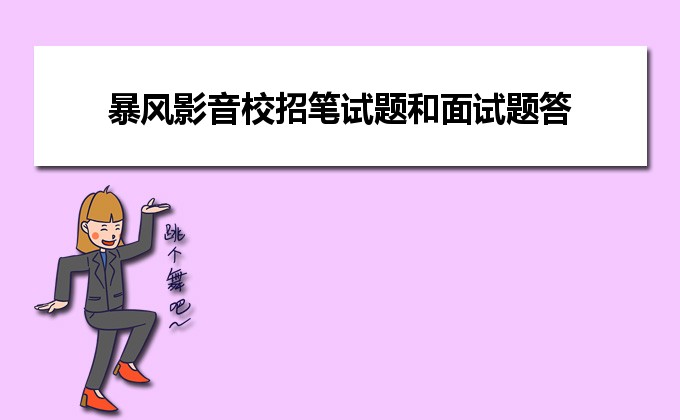这些题目对我的笔试帮助很大,有需要的朋友都可以来看看,在笔试中能遇到的题目基本上下面都会出现,虽然形式不同,当考察的基本的知识点还是相同的。
Simulated Test of SCJP for JAVA2 PlatFORM (only for training))
网上可以找到很多,因为我是转载ICXO网站的,但是上面的有很多可能有由于页面原因,每个题目我都做了测试,出现错误的我就稍微做了下修正,希望和大家一起研究和探讨,在分析中肯定有不足和谬误的地方还请大虾们能够给予及时的纠正,特此感谢。
1.
public class ReturnIt{
returnType methodA(byte x, double y){ //line 2
return (short)x/y2;
}
}
what is valid returnType for methodA in line 2?
答案:返回double类型,因为(short)x将byte类型强制转换为short类型,与double类型运算,将会提升为double类型.
2.
1) class Super{
2) public float getNum(){return 3.0f;}
3) }
4)
5) public class Sub extends Super{
6)
7) }
which method, placed at line 6, will cause a compiler error?
A. public float getNum(){return 4.0f;}
B. public void getNum(){}
C. public void getNum(double d){}
D. public double getNum(float d){return 4.0d;}
Answer:B
A属于方法的重写(重写只存在于继承关系中),因为修饰符和参数列表都一样.B出现编译错误,如下:
Sub.java:6: Sub 中的 getNum() 无法覆盖 Super 中的 getNum();正在尝试使用不
兼容的返回类型
找到: void
需要: float
public void getNum(){}
^
1 错误
B既不是重写也不是重载,重写需要一样的返回值类型和参数列表,访问修饰符的限制一定要大于被重写方法的访问修饰符(public>protected>default>private);
重载:必须具有不同的参数列表;
可以有不同的返回类型,只要参数列表不同就可以了;
可以有不同的访问修饰符;
把其看做是重载,那么在java中是不能以返回值来区分重载方法的,所以b不对.
3.
public class IfTest{
public static void main(String args[]){
int x=3;
int y=1;
if(x=y)
System.out.println("Not equal");
else
System.out.println("Equal");
}
}
what is the result?
Answer:compile error 错误在与if(x=y) 中,应该是x==y; =是赋值符号,==是比较操作符
4. public class Foo{
public static void main(String args[]){
try{return;}
finally{ System.out.println("Finally");}
}
}
what is the result?
A. print out nothing
B. print out "Finally"
C. compile error
Answer:B java的finally块会在return之前执行,无论是否抛出异常且一定执行.
5.public class Test{
public static String output="";
public static void foo(int i){
try {
if(i==1){
throw new Exception();
}
output +="1";
}
catch(Exception e){
output+="2";
return;
}
finally{
output+="3";
}
output+="4";
}
public static void main(String args[]){
foo(0);
foo(1);
24)
}
}
what is the value of output at line 24? Answer:13423 如果你想出的答案是134234,那么说明对return的理解有了混淆,return是强制函数返回,本题就是针对foo(),那么当执行到return的话,output+="4"; 就不再执行拉,这个函数就算结束拉.
6. public class IfElse{
public static void main(String args[]){
if(odd(5))
System.out.println("odd");
else
System.out.println("even");
}
public static int odd(int x){return x%2;}
}
what is output?
Answer:Compile Error
7. class ExceptionTest{
public static void main(String args[]){
try{
methodA();
}
catch(IOException e){
System.out.println("caught IOException");
}
catch(Exception e){
System.out.println("caught Exception");
}
}
}
If methodA() throws a IOException, what is the result? (其实还应该加上:import java.io.;)
Answer:caught IOException 异常的匹配问题,如果2个catch语句换个位置,那就会报错,catch只能是越来越大,意思就是说:catch的从上到下的顺序应该是:孙子异常->孩子异常->父亲异常->老祖先异常.这么个顺序.
8. int i=1,j=10;
do{
if(i++>--j) continue;
}while(i<5); (注意不要丢了这个分号呦)
After Execution, what are the value for i and j?
A. i=6 j=5
B. i=5 j=5
C. i=6 j=4
D. i=5 j=6
E. i=6 j=6
Answer:D
9. 1)public class X{
2) public Object m(){
3) Object o=new Float(3.14F);
4) Object[] oa=new Object[1];
5) oa[0]=o;
6) o=null;
7) oa[0]=null;
8) System.out.println(oa[0]);
9) }
10) }
which line is the earliest point the object a refered is definitely elibile
to be garbage collectioned?
A.After line 4 B. After line 5 C.After line 6
D.After line 7 E.After line 9(that is,as the method returns)
Answer:D
如果 6) o=null 变成 o=9f ,并且把7)去掉,那么8)将会输出什么呢?
10. 1) interface Foo{
2) int k=0;
3) }
4) public class Test implements Foo{
5) public static void main(String args[]){
6) int i;
7) Test test = new Test();
8) i = test.k;
9) i = Test.k;
10) i = Foo.k;
11) }
12) }
what is the result? Answer:compile successed and i=0 接口中的int k=0虽然没有访问修饰符,但在接口中默认是static和final的
11. what is reserved words in java?
A. run
B. default
C. implement
D. import
Answer:B,D
12. public class Test{
public static void main(String[] args){
String foo=args[1];
Sring bar=args[2];
String baz=args[3];
}
}
java Test Red Green Blue
what is the value of baz?
A. baz has value of ""
B. baz has value of null
C. baz has value of Red
D. baz has value of Blue
E. baz has value of Green
F. the code does not compile
G. the program throw an exception
Answer:G
分析:感觉原应该多一些语句吧,至少应该有红绿蓝的赋值语句之类的,才能叫java Test Red Green Blue 才能有后面的选项,所以现在感觉很奇怪,不过就这个样子吧.这个问题在于:数组参数的理解,编译程序没有问题,但是运行这个程序就会出现问题,因为参数args没有给他分配空间那么他的长度应该是0,下面却用拉args[1]........等等的语句,那么定会出现越界错误.
错误如下:Exception in thread "main" java.lang.ArrayIndexOutOfBoundsException: 1
at Test.main(Test.java:4)
13. int index=1;
int foo[]=new int[3];
int bar=foo[index];
int baz=bar+index;
what is the result?
A. baz has a value of 0
B. baz has value of 1
C. baz has value of 2
D. an exception is thrown
E. the code will not compile
Answer:B
分析:《thinking in java》中的原话:若类的某个成员是基本数据类型,即使没有进行初始化,java也会确保它获得一个默认值,如下表所示:
| 基本类型 | 默认值 |
| boolean | false |
| char | '/u0000'(null) |
| byte | (byte)0 |
| short | (short)0 |
| int | 0 |
| long | 0L |
| float | 0.0f |
| double | 0.0d |
千万要小心:当变量作为类的成员使用时,java才确保给定其默认值,。。。。。(后面还有很多话,也很重要,大家一定要看完成,要不然还是不清楚)
14. which three are valid declaraction of a float?
A. float foo=-1;
B. float foo=1.0;
C. float foo=42e1;
D. float foo=2.02f;
E. float foo=3.03d;
F. float foo=0x0123;
Answer:A,D,F 分析:B错误,因为1.0在java中是double类型的,C,E错误同样道理,都是double类型的
15. public class Foo{
public static void main(String args[]){
String s;
System.out.println("s="+s);
}
}
what is the result?
Answer:compile error 分析:需要对s进行初始化,和13题是不是矛盾呢:不矛盾,因为它不是基本类型,也不是类的成员,所以不能套用上述的确保初始化的方法。









